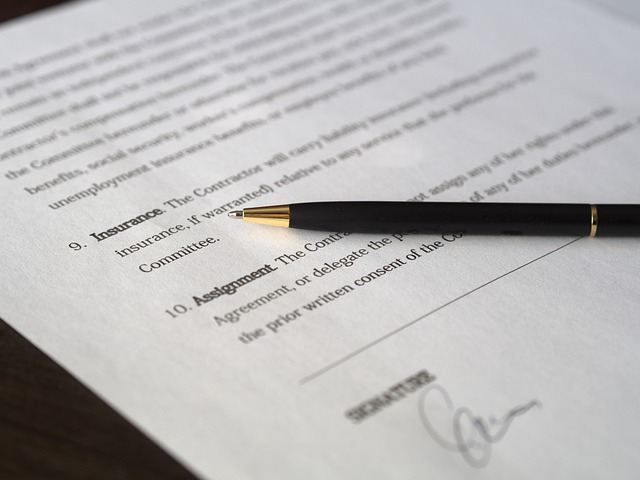Translating UK cookbooks for global audiences requires a specialized approach. Professional translators collaborate with culinary experts to adapt recipes, ensuring authenticity and accessibility. This meticulous process involves removing jargon, standardizing measurements, providing cultural context notes, and employing advanced software. Quality Assurance protocols verify linguistic accuracy and flavor profiles. Expertise in both language and cuisine is crucial, preserving the essence of UK culinary heritage for global food enthusiasts through exceptional translation services.
“Cooking up a global success story? Seamless cookbook translation is key! In this guide, we explore the art of translating culinary delights from UK cookbooks into diverse languages. From understanding the unique needs of recipes and ingredients to choosing expert translators, we navigate the process smoothly.
Learn how to prepare content for accuracy, select the right tools, and ensure consistent flavors remain intact. Discover the secrets to high-quality cookbook translation services, making your culinary guides accessible to a global audience.”
- Understanding the Unique Needs of Cookbooks
- Preparing Content for Accurate Translation
- Choosing the Right Translators and Tools
- Quality Assurance: Ensuring Culinary Consistency
Understanding the Unique Needs of Cookbooks

Cookbooks and culinary guides are unique in their language requirements, reflecting the diverse cultural ingredients that go into a dish. When translating UK cookbooks, understanding regional dialects, ingredient variations, and culinary terminology is paramount. A professional translation service should not only capture the essence of each recipe but also adapt it for a new culture while maintaining authenticity.
The process involves close collaboration with chefs, food writers, and cultural experts to ensure that flavor descriptions, cooking techniques, and even humor are accurately conveyed. This attention to detail ensures that readers in different parts of the world can not only follow recipes but also embrace the culinary heritage they represent, making translation services indispensable for reaching global audiences with UK cookbooks.
Preparing Content for Accurate Translation

When preparing UK cookbooks and culinary guides for translation, it’s essential to ensure all content is clear, consistent, and accessible. Start by removing any unnecessary jargon or specialized terms that might confuse translators; provide definitions or explanations instead. Standardize recipes, measurements, and ingredients to align with international conventions, making the translation process more straightforward.
Additionally, include cultural context where relevant. For instance, if a recipe references specific UK traditions or ingredients, offer notes explaining these nuances to help translators convey the essence accurately. This collaborative approach between authors, translators, and editors ensures that the translated cookbook retains its authenticity and appeals to global audiences, elevating the overall quality of UK culinary guides on the international market.
Choosing the Right Translators and Tools

When it comes to translating UK cookbooks and culinary guides, selecting the right team is paramount. Look for translators who not only possess expertise in language but also a deep understanding of culinary terminology and culture. Experience in the food industry is invaluable, ensuring accurate translations that capture the essence of each recipe and ingredient.
The right tools are equally important. Advanced translation software can streamline the process, enhance consistency, and enable efficient handling of large volumes of text. These tools often include glossaries and term bases specific to cooking, further refining the accuracy and fluency of the final translated content. This meticulous approach ensures that UK cookbooks and culinary guides maintain their quality and appeal in global markets.
Quality Assurance: Ensuring Culinary Consistency

When translating UK cookbooks and culinary guides, Quality Assurance (QA) is paramount to ensure that the final product maintains culinary consistency. This involves rigorous checks at every stage of the translation process to preserve the original recipes’ accuracy and flavour profiles. Expert translators with a deep understanding of both languages and cuisine are essential for this task. They not only translate words but also convey the nuances, techniques, and cultural aspects embedded in the source text.
QA measures include comparing translated recipes against the original, tasting tests to validate flavour descriptions, and consulting with culinary experts to ensure authenticity. Advanced translation software and specialized glossaries further support this process, helping to maintain the integrity of ingredients, cooking times, and step-by-step instructions. This meticulous approach guarantees that UK cookbooks and culinary guides remain reliable resources for food enthusiasts worldwide.
In conclusion, translating UK cookbooks and culinary guides requires a meticulous approach. By understanding specific cookbook requirements, preparing content thoughtfully, selecting suitable translators and tools, and implementing robust quality assurance processes, you can ensure a seamless translation process that retains the essence of the original content. This is essential for creating accessible and culturally relevant resources for global audiences. Turn to professional UK cookbook translation services for exceptional results.
